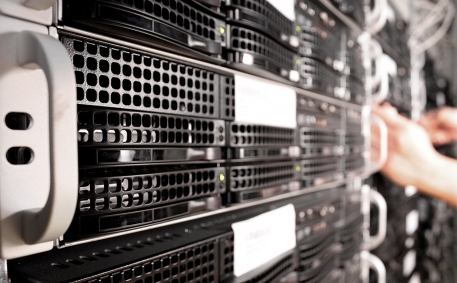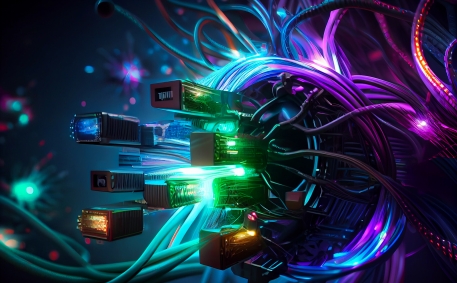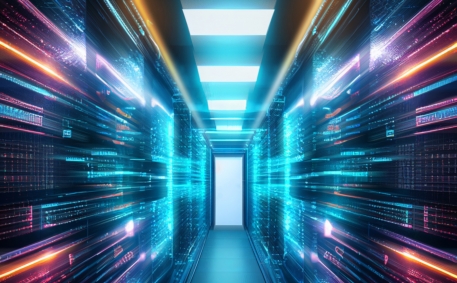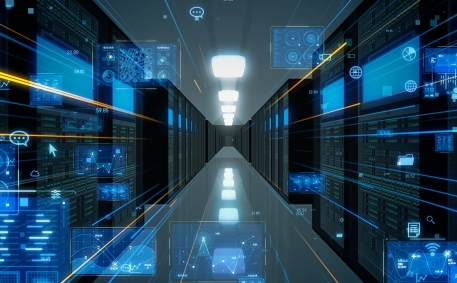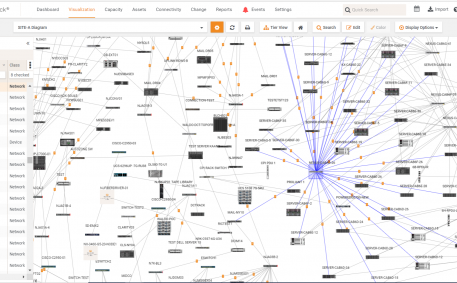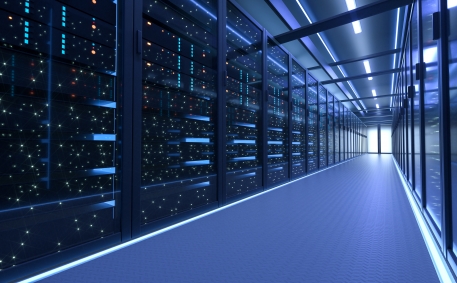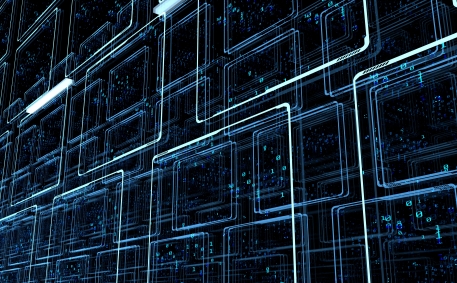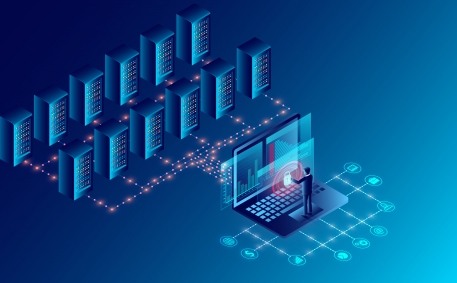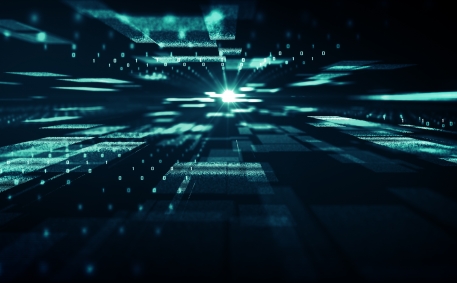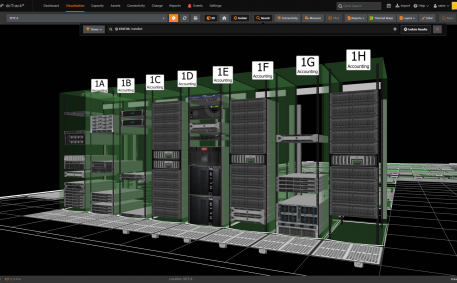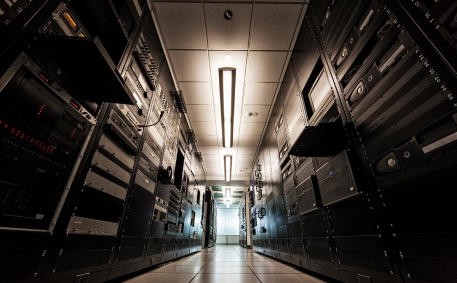-
When you don’t have reliable processes for managing IT assets, you can quickly lose control. Asset inventories lose their accuracy, data across tools like CMDBs and spreadsheets stops matching reality, and no one can say with confidence what equipment is in use, where it’s located, how it’s connected, and whether it’s still needed.
For data center professionals, a lack of asset visibility creates real risks: Unused servers continue to rack up maintenance costs, ghost servers unnecessarily consume resources, compliance audits become stressful and time-consuming when records are incomplete or inaccurate, and reporting to leadership takes too long.
The fact is what you don’t know about your ass...
-
Modern data centers depend on multiple teams, each using their own systems—CMDBs, ticketing platforms, cloud and virtualization tools, network and server management software, observability stacks, collaboration apps, and countless spreadsheets. Each tool provides important insights, but together they create a complex and sprawling technology landscape.
Organizations are turning to Data Center Infrastructure Management (DCIM) software to solve these challenges by consolidating tools and information into a single source of truth.
The Problem with Siloed Tools
When tools operate in silos, the result is a series of challenges that impact all aspects of data center operations:
Data fragmenta...
-
Uptime Institute’s 2025 Global Data Center Survey shows that capacity planning remains a top challenge for operators. Nearly one-third of vendors identify forecasting future capacity requirements as their customers’ single biggest issue, more than any other concern.
Modern data centers face new complexities as digital services expand and hybrid IT architectures shift workloads across on-premises, colocation, and cloud environments. Without accurate planning, organizations risk wasted resources, unnecessary costs, and operational disruptions.
To stay ahead, data center managers are increasingly turning to modern Data Center Infrastructure Management (DCIM) software, which simplifies and autom...
-
As colocation demand surges, space is becoming increasingly scarce and costly.
According to CBRE, the average asking rate in primary wholesale colocation markets for a 250–500 kW requirement has climbed 12.6% year-over-year to a record $184.06 per kW/month, while vacancy rates have dropped to a record-low 1.9%.
With vacancy rates low and power costs rising, doing more with less in your data center is essential. To adapt, organizations are turning to DCIM software to uncover inefficiencies, right-size deployments, and cut costs without sacrificing performance.
The High Cost of Colocation
Typical colocation data center cost drivers include:
Space. Charges are usually based on the amount o...
-
Accurately tracking how data center devices are connected—across switches, patch panels, structured cabling, and more—is essential for efficient data center operations. But for many teams, documentation still lives in static diagrams or outdated spreadsheets, requiring extensive manual effort. This is time-consuming and leads to inaccuracies that can cause delays in planning or troubleshooting and unnecessary risk.
Sunbird DCIM changes that. By automating network diagramming and integrating with tools like NetBox, NetBrain, and Cisco ACI, Sunbird delivers a real-time, comprehensive view of the physical connectivity in your environment.
The Problem with Traditional Network Diagrams
Document...
-
Note: As of publication, NVIDIA has not released final specifications for the GB300 NVL72. The details shared here are based on projections informed by GB200 benchmarks, industry analysis, and expected generational improvements.
As the AI arms race accelerates, data center professionals are already preparing for what’s next: the anticipated NVIDIA GB300 NVL72.
While official specs have yet to be released, the GB300 is projected to continue NVIDIA’s trajectory of higher performance, increased density, and elevated power demands — posing critical questions for data center infrastructure teams:
Can your facility handle the power, space, and cooling requirements of the GB300 NVL72?
Estimated P...
-
As power-hungry workloads like AI and HPC become the norm, data centers face mounting pressure to rethink their thermal strategies. Traditional air cooling has long been the industry standard, but with rising rack densities and energy costs, many operators are exploring liquid cooling as a more efficient alternative.
In 2024, the global liquid cooling market was valued around $4.18 billion and is projected to reach $13.2 billion by 2029.
In this post, we’ll compare the two approaches—breaking down their benefits, trade-offs, and ideal use cases—to help you decide what’s right for your environment.
Understanding the Basics
Air Cooling
In a traditional air-cooled data center, chilled air i...
-
Historically, data center professionals have managed their sites using traditional tools like Excel and Visio.
While manual spreadsheets and diagrams served their purpose for simple tasks, they were never designed for the complexity, scale, or speed of modern data center operations.
However, Data Center Infrastructure Management (DCIM) software is purpose-built to plan, provision, model, track, and monitor all infrastructure across all sites.
In this blog post, we’ll detail five key benefits of using DCIM software over traditional tools like Excel and Visio.
Increased Accuracy and Operational Efficiency With a Single Source of Truth
Spreadsheets fall short in accuracy, usability, and colla...
-
Technology assets are no longer confined to the walls of a traditional data center. They now span a range of environments from core facilities and labs to distributed sites like IDF closets, manufacturing sites, and retail branches. Yet many organizations still rely on fragmented tools and manual processes to manage these distributed environments. This can result in gaps in visibility, inconsistent documentation, and higher operational risk.
Creating a digital twin of all your technical spaces and managing them through a centralized platform addresses these challenges head-on. Before looking at the benefits, it’s worth understanding the operational issues that arise when remote sites are neg...
-
In the world of data center operations, timing matters. While adopting technology too early and choosing the wrong vendor can lead to frustration, waiting too long can leave you playing catch-up.
That’s why the Gartner Hype Cycle is such a useful tool. It helps organizations separate fleeting hype from lasting value.
Right now, Data Center Infrastructure Management (DCIM) software has reached a critical inflection point in the Gartner Hype Cycle: the “Plateau of Productivity.”
This is a recognition that DCIM software has gone mainstream, adoption is accelerating, and proven solutions are delivering measurable value.
That’s why, if DCIM software is not yet in your plans, now is the time to ta...
-
Data centers are energy-intensive, and with the surge in AI-driven workloads, their global energy consumption is projected to more than double by 2030, potentially surpassing the current electricity consumption of Japan.
For most data center operators, energy is one of their largest recurring expenses. As demand for data center capacity continues to grow and energy prices fluctuate, energy efficiency is no longer just a sustainability goal, it's a core business concern.
This is where Data Center Infrastructure Management (DCIM) software comes in.
DCIM software provides the information and visibility needed to uncover inefficiencies, optimize resource usage, and reduce operating costs.
In thi...
-
To manage today’s complex and distributed data center environments, data center professionals need more than spreadsheets, static diagrams, and siloed monitoring tools.
They need a real-time and interactive view of their infrastructure, a data center digital twin.
Modern Data Center Infrastructure Management (DCIM) software makes this possible. Far beyond basic monitoring or asset tracking, DCIM software delivers a true digital twin. By combining rich modeling capabilities, real-time telemetry, and cross-site visibility, DCIM software transforms data into actionable information.
In this blog post, we’ll explore how modern DCIM software provides a data center digital twin that enables modelin...
-
We’re proud to announce the general availability of dcTrack® 9.2.3, the latest version of Sunbird’s DCIM Operations software.
dcTrack 9.2.3 Availability
This dcTrack 9.2 update is available worldwide on a subscription or perpetual license basis to all customers with valid maintenance contracts. Download the update file from Sunbird’s support portal to upgrade today.
If you would like to try a full-featured test drive of dcTrack, get your login credentials to the free online demo system now.
What’s New in dcTrack 9.2.3
The following features are new or enhanced in dcTrack 9.2.3 for an easy, fast, and complete second-generation DCIM solution.
UniversalConnector G2 to Enable a Single Pane...
-
For those deep in the day-to-day operations of a data center, the value of a modern Data Center Infrastructure Management (DCIM) solution is often clear. It helps improve capacity planning, uptime, energy efficiency, and the productivity of people. Data center professionals understand this, and most would love to have DCIM software that simplifies their jobs and helps them deliver better results.
But for leadership who controls the budget, the benefits of DCIM software aren’t always so obvious. They’re thinking in terms of risk exposure, business agility, and financial outcomes, not about racks, servers, or cables.
To secure buy-in from leadership, you need more than a list of features. You...
-
As businesses grow, the complexity of managing both physical and virtual assets across owned and leased data centers has become increasingly challenging. Traditionally, IT and Operational Technology (OT) teams have worked with siloed tools to manage their respective domains. On one hand, Data Center Infrastructure Management (DCIM) systems have focused on managing critical infrastructure like power, cooling, and in-rack devices. On the other, asset management tools have been designed for IT-specific needs such as equipment monitoring, utilization, and lifecycle management.
The fragmented nature of these tools creates inefficiencies as multiple tools require manual correlation of IT services...





























